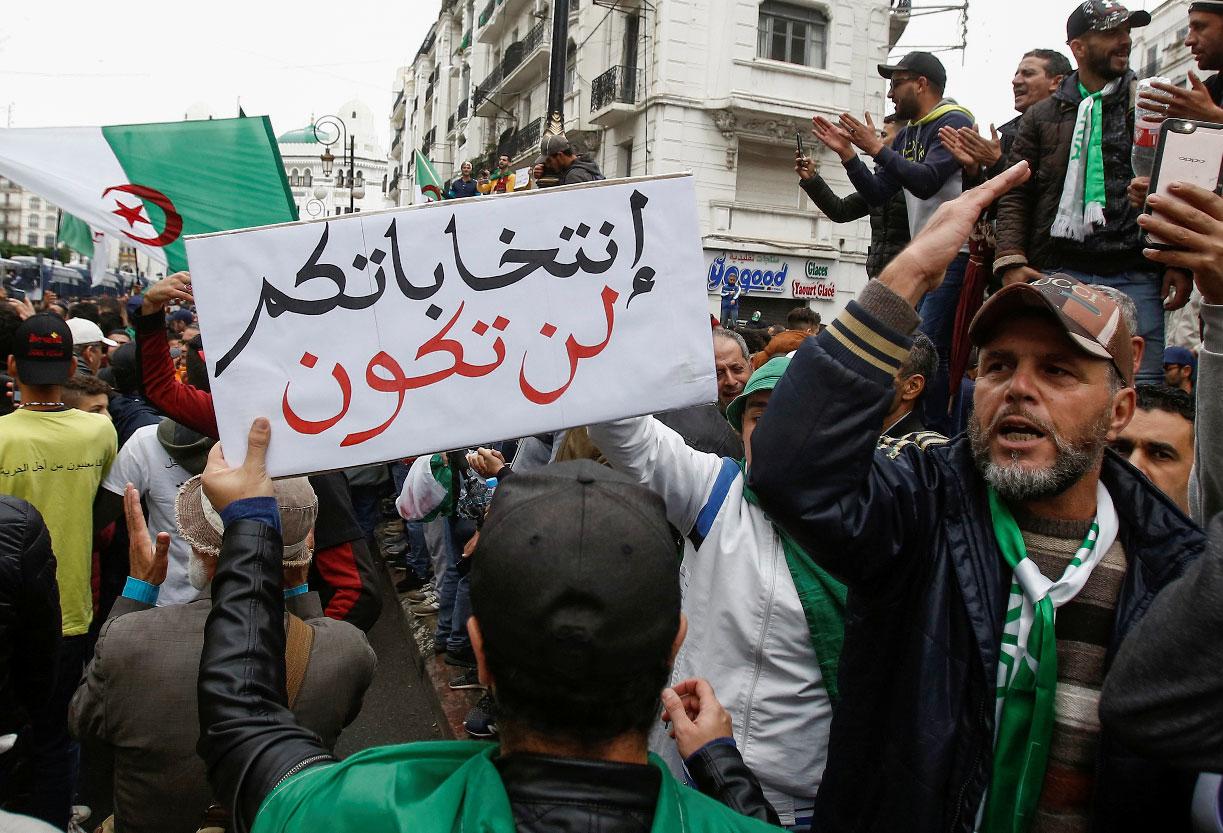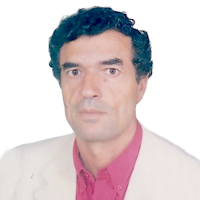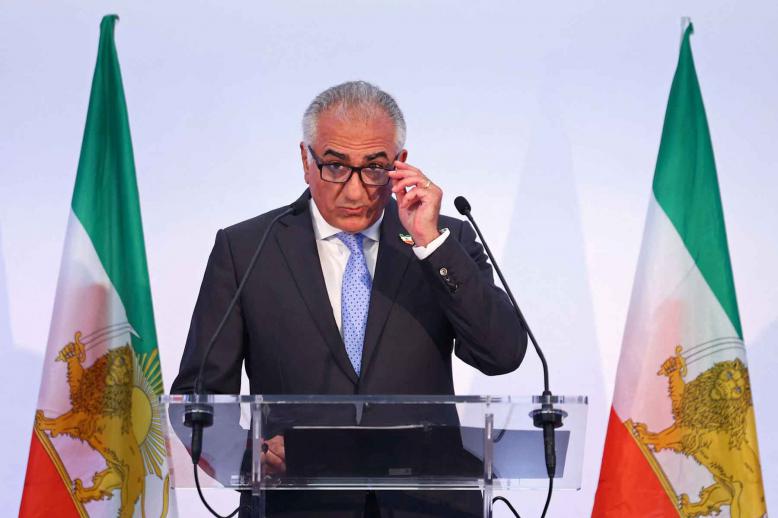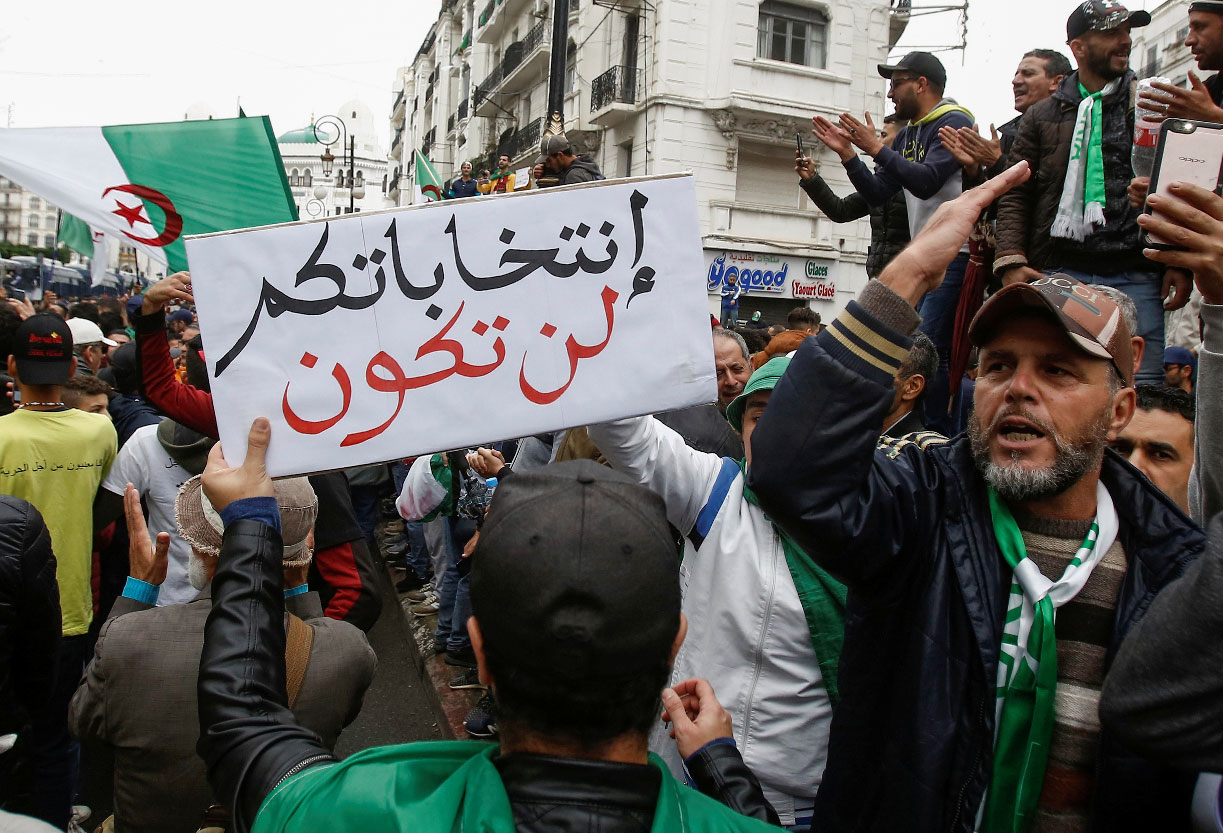Algerian presidential candidates face public scorn
TUNIS - The normally friendly atmosphere at Algiers’ Baba Hassan restaurant turned sour when former Algerian Prime Minister Ali Benflis prepared to dine there.
Other patrons at the Syrian restaurant insulted the former prime minister, who had just been confirmed as one of five candidates in Algeria’s presidential elections. He left the restaurant but people continued to confront him.
The outrage towards Benflis, who served as National Liberation Front (FLN) chief and prime minister from 1988-91 and later under former Algerian President Abdelaziz Bouteflika, underscores Algerians’ frustration with a political class many claim is clinging to a corrupt power structure.
That frustration led protesters to take to the streets every Friday since February 16, demanding an overhaul of a regime that has held power for decades.
Authorities arrested numerous former regime officials on charges of corruption and scheduled elections for December 12. Protesters, unconvinced that swift elections will fundamentally change the system, oppose the vote and seek a transitional period that allows for a serious opposition force to take shape.
Benflis, who unsuccessfully ran for president in 2004 and 2014, is reportedly backed by General Abderrazak Cherif, a close ally of chief-of-staff General Ahmed Gaid Salah. Cherif is a Chaoui from the same Batana region as Benflis. One of Cherif’s sons is a local leader in Benflis’s party in the oil-producing areas of Hassi Messaoud and Ouargla.
Benflis is not the only politician to be publicly scorned by angry protesters. Tayeb Hmarnia, a senator who represents presidential candidate Abdelmadjid Tebboune in Annaba, was confronted by people who recognised him as he walked on a sidewalk
“Klitou lebled ya sarraguine” (“You looted the country, thieves), they shouted, pointing at Hmarnia.
A man draped in the Algerian national flag stood in front of Hmarnia and warned: “Beware of what awaits you the next time you dare come by here.”
The incident, a video of which went viral on social media, drew concerns that Algeria’s presidential candidates, all of whom served in some fashion under Bouteflika, would find it difficult to connect with voters.
“What will happen when candidates or their representatives descend on the campaign trails to address meetings and other outreach gatherings?” asked political writer Sonia Lyes.
Protesters, estimated to number in the millions, demonstrated November 1, with many voicing opposition to the December 12 election. Crowds reportedly chanting: “la Intikhabat maa al Isabaat” (“No to the elections with the gangs in power”).
The government insists that elections are the only legitimate way forward and warned protesters not to disrupt the process.
In addition to Benflis and Tebboune, Azzedine Mihoubi, Abdelkader Bengrina and Abdelaziz Belaid are running for the country’s highest office.
Mihoubi, a poet, served as a minister under Bouteflika and heads the National Democratic Rally led by former Prime Minister Ahmed Ouyahia, who is jailed on corruption charges. Bengrina served as tourism minister under Bouteflika. Belaid was a leader of the FLN’s youth and student organisations.
Political writer Samir Allam said Algerian protesters’ “exceptional mobilisation” had “sent a message to the decision makers that they do not want a new experience with another figure from the regime that has ruined the country.”
“Bouteflika’s regime has been uniquely traumatising for most Algerians,” he said. “The country was set back in every field of development while it has all the means and resources to make huge progress.
“Today, the sole prospect offered by the upcoming elections is to restart with the figures of the old system and go throughout more years of wasting natural and human rich resources.”
Analysts said candidates had given indications they are beholden to the country’s military leaders and army-backed authorities because they have not spoken publicly about the arrest of leading protest figures and allegations that judges who were on strike were assaulted by security forces.
“The candidates’ statements from the beginning of the electoral process have given no indication something very good will come from them,” said Allam. “They do not dare to express themselves about the rights abuses.
“Who can imagine one of these candidates once elected to confront the system to change it from inside?”
Former Prime Minister Mouloud Hamrouche refused to run for president, saying he would be unable to bring forward the kind of change they seek, given the military establishment’s far-reaching power.
“The Algerian political system has wiped out the embryo of the state fruit of the national liberation war, extinguished the law and destroyed governance,” Hamrouche said. “Algeria badly needs a new, genuine model of a political system for the state rather than a change of men. The homeland survival, that of its army and government depends on such a system.”
Political writer Karim Khaoune said the five candidates on the ballot “mean the regime is competing against itself.”
“A foretaste was given to them by this misfortune experienced by Benflis at the restaurant,” he added.
The Algerian Army command has held firm that elections will go ahead December 12.
“There is no room for the electoral process to be called into question since it has won the assent of the people who are determined to see it successfully completed,” said the army mouthpiece El Djeich in an editorial November 6.
“Despite provocations and tendentious campaigns, the enemies of the homeland will not be able to turn back neither the tide of history nor stop the train which is about to reach its final destination,” it added.
Lamine Ghanmi is a veteran Reuters journalist. He has covered North Africa for decades and is based in Tunis.
This article was originally published in The Arab Weekly.







